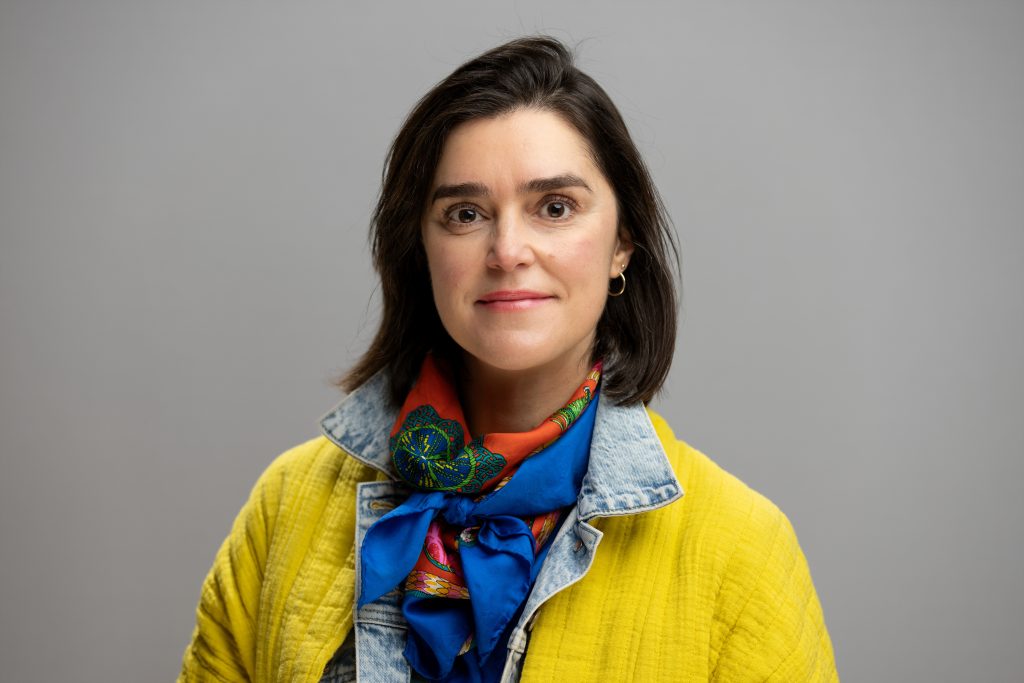This summer, Amaya Atucha will begin her new role as department chair, overseeing significant changes and growth in the Department of Plant and Agroecosystem Sciences.
By Audra Koscik

July 1, 2025, Patrick Krysan, a professor in plant and agroecosystem sciences, will hand over the role of department chair to Amaya Atucha.
The department underwent several significant changes during the six years that Krysan served as chair. Krysan was chair of the Department of Horticulture starting in 2019. He led that department through many challenges such as the COVID-19 pandemic. He also worked with Agronomy Chair Chris Kucharik to help organize the merger of the Departments of Agronomy and Horticulture to create the Department of Plant and Agroecosystem Sciences. Krysan became chair of the new department in 2023.
Krysan guided substantial growth in the new department’s programs and scientific interests. In 2024, plant and agroecosystem sciences launched the new agroecology undergraduate major. This spring, the department announced the new plant science and technology undergraduate major. Additionally, over the past two years, the department has hired four new faculty members.
This July, Atucha will continue to build upon this work as the new department chair. Atucha, a professor in plant and agroecosystem sciences, specializes in fruit crop production systems. She runs the UW Fruit Program, a prolific research and extension group.
Atucha joined the department in 2014 as an assistant professor. Over the past decade, Atucha has mentored many undergraduate and graduate students as well as early career staff. She also has served as chairs on committees such as the Department of Plant and Agroecosystem Science’s Equity and Diversity Committee.
This spring, the department elected Atucha as Krysan’s successor. “I see this role as the department chair mostly as a service to the department. Basically, it’s an opportunity to give back to this community that supported me through my career,” says Atucha.
Atucha emphasizes how mentorship is key to the chair’s work. “I’ve had the really good fortune of being mentored by some outstanding former chairs that I feel were really helpful,” she says. “Because of that, I want to pay that forward by creating similar conditions for our current faculty, future faculty and staff, and also students, for all of them to thrive in this department.”
As a part of this work, Atucha plans to support professional development opportunities for students, staff, and faculty. Additionally, she aims to cultivate a workplace culture that centers on inclusivity and collaboration. Atucha already modeled this goal as chair of the department’s Equity and Diversity Committee by overseeing many department community-building events.
Atucha also strives to increase the department’s education and outreach opportunities by growing the new undergraduate majors, getting more students involved in research, and strengthening collaborations with stakeholders.
This July, Atucha will be stepping into an ever-changing landscape. Two of the department’s new faculty will be starting this summer and fall. The department is working on expanding the graduate programs and supporting the two new undergraduate majors. Additionally, the department is navigating potential changes to federal funding.
“It’s an interesting time that we’re living in right now. There are some changes happening and opportunities,” says Atucha. “My goal as chair is to try to find the best way to guide everybody through these changes… Changes are never easy, but when you have a good leader that you feel confident in, I think it makes the transition a little bit better. So, I’m hoping to be that.”
Change is nothing new for the department. The founding departments (horticulture and agronomy) started over a century ago and have already weathered many growth spurts and challenges. Over the decades, each department has contributed greatly to their respective scientific disciplines and to local and international agricultural systems.
This work continues to present day. “There are so many smart, dedicated people doing really impactful work in this department already,” says Atucha. “I’m looking forward to trying to build upon that strong foundation and help elevate the work that people are doing and strengthen our connections across the university and with our stakeholders.”
